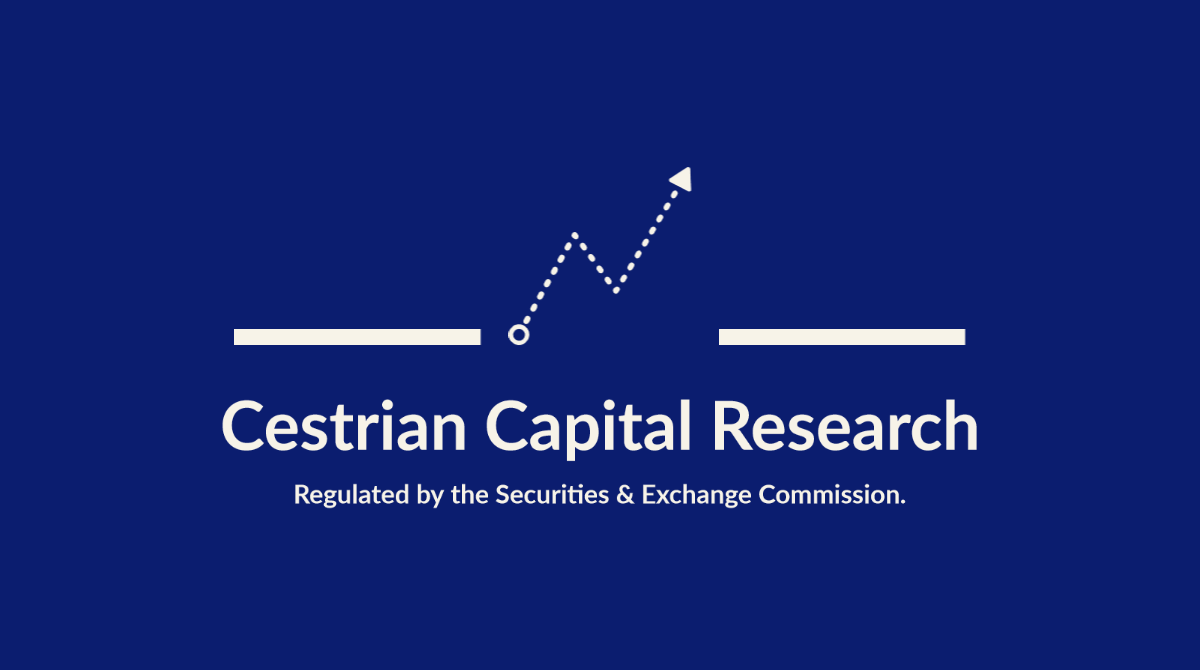Will The Center Hold? Taiwan Semiconductor Q2 FY12/24 Earnings Review

DISCLAIMER: This note is intended for US recipients only and, in particular, is not directed at, nor intended to be relied upon by any UK recipients. Any information or analysis in this note is not an offer to sell or the solicitation of an offer to buy any securities. Nothing in this note is intended to be investment advice and nor should it be relied upon to make investment decisions. Cestrian Capital Research, Inc., its employees, agents or affiliates, including the author of this note, or related persons, may have a position in any stocks, security, or financial instrument referenced in this note. Any opinions, analyses, or probabilities expressed in this note are those of the author as of the note's date of publication and are subject to change without notice. Companies referenced in this note or their employees or affiliates may be customers of Cestrian Capital Research, Inc. Cestrian Capital Research, Inc. values both its independence and transparency and does not believe that this presents a material potential conflict of interest or impacts the content of its research or publications.
Numbers Good, Doesn’t Matter
Through a combination of laziness, short-sightedness, the dominance of the venture capital funding model (which decrees capex to be A Bad Thing) and a focus on very different timeframes, US semiconductor companies have gradually surrendered manufacturing leadership to Taiwan Semiconductor Manufacturing Company over the course of several decades. One can and should criticize Intel for tripping over its own shoelaces with each successive (or perhaps one should say abortive) move to smaller feature sizes, but at least Intel is still trying to achieve manufacturing excellence. Most other semiconductor companies of note in the US today are fabless ie. they design integrated circuits but outsource the hazardous, expensive, environmentally ruinous business of manufacturing (“fabrication”) to third parties, of which TSMC is the largest by a country mile.
Division of labor across countries and continents is a really good idea for rich people when a small-l liberal world order prevails, because it lowers costs and increases earnings, return on capital and whatnot. During a liberal world order it may or may not be a good idea for poor people; depends whether the poor person in question has their job outsourced and, if so whether or not they can get a better one afterwards. Often not, of course. During an illiberal world order - which is the direction of travel in recent years - cross-national outsourcing becomes a risk for rich people. And when you have the following factors at play, the risk is real:
- Quasi-monopolistic manufacturing of devices which are fundamental to the US economy (make no mistake, this is true).
- Location of quasi-monopolist, a disputed territory which itself believes to be sovereign but a much larger, richer, more powerful and better-armed neighbor believes it to be a mere province of said better-armed neighbor
- Better-armed neighbor in the ascendant in the new world order
- US desire to maintain the status quo wavering somewhat
Or to put it another way, the very best case for TSMC if China takes physical or proxy control of Taiwan is that it is subjected to extensive export controls, meaning that only those devices approved by government for export, at the prices government deems fair, will actually be exported. There will be some black market stuff too, of course, but nobody can rely on that to scale a business.
What does this mean? If China takes physical or proxy control of Taiwan, which is an increasing probability - I am not saying it is the most likely outcome, I am saying it is more likely now than it was a couple years ago - then US semiconductor is going to be hit hard by the more fractious relationship with its dominant supplier. I would expect there to be some supply, but with difficulties in volume, pricing, latest process nodes, etc. This may benefit Intel and Micron, because they remain integrated device manufacturers so they at least can operate more independently than can Nvidia, Broadcom and so on. But it will hit tech very hard.
This is what you have to have in mind if you have a position in TSMC or are thinking of doing so. Over and above the usual fundamental and technical analysis, you need a view on political risk. If China, then stock down. If not China, stock up, all other things being equal.
With that in mind let’s take a look at today’s earnings print, the valuation, stock chart, price targets and our rating.
